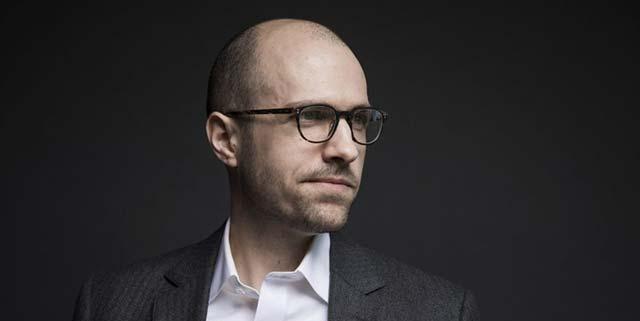According to US media reports, A.G. A. A.G. Sulzberger said on Sunday that he had a private meeting with Trump at the White House on July 20, at which he "pleaded" that President Trump would reconsider the widespread attacks on journalists, calling Trump's anti-press rhetoric "not only divisive, but increasingly dangerous."

Suzberg said Trump aides had previously asked not to make the meeting public. But, on Sunday, Trump himself revealed their informal meetings to more than 53 million Twitter followers. Only then did Suzberg decide to comment publicly.
Trump tweeted: "I had an interesting meeting at the White House with New York Times publisher Suzberg. We focused on exploring the large amount of fake news released by the media and how fake news has evolved into an 'enemy of the people'. sorrowful! ”
Hours after the meeting ended, Trump issued a series of tweets to continue bashing the media, accusing reporters of disclosing "internal government deliberations" that could endanger "many lives," but he did not give examples, writing only "very unpatriotic!" ”
He also called press freedom "arising from the responsibility to report accurately" (the consensus of the press) and vowed not to allow the country to be "destroyed by anti-Trump enemies in the dying newspaper industry."
Trump also claimed that 90 percent of reports about his administration were negative, leading to a "record low" in public confidence in the media. He also singled out his least favorites, The New York Times and The Washington Post, which "always report bad things even on very positive achievements," and claimed that "they will never change!" ”
Suzberg succeeded his father as publisher on January 1 this year. After Suzberg took office, Trump tweeted that his appointment was the "last chance" for The New York Times to realize its vision of the founder's impartiality.
In his January tweet, Trump urged the new publisher to "hire more impartial journalists, throw away all false and non-existent 'sources,' and treat the President of the United States fairly so that the next time I (and the people) win, you don't have to apologize to your readers for dereliction of duty!" ”
Suzberg said the main purpose of accepting the meeting with the president was to "draw attention to the president's radical anti-press rhetoric."
"I told the president directly that I think his remarks are not only divisive, but increasingly dangerous," he said. ”
Suzberg said he told Trump that while the term "fake news" is not true and harmful, "I am more concerned about him referring to journalists as 'enemies of the people,' and I remind him that this inflammatory language is fueling threats to journalists and will lead to violence."
Suzberg stressed that leaders of other countries are already using Trump's rhetoric to justify cracking down on journalists.
"I remind him that this kind of behavior is endangering lives, undermining our nation's democratic ideals, and eroding one of our nation's greatest exports — the promise of free speech and freedom of the press," he said. ”
Suzberg added that he made it clear that he was not asking Trump to blunt his attack on The New York Times (if Trump believes the New York Times reporting was unfair), "but rather imploring him to reconsider the widespread attack on journalism, which I think would be dangerous and harmful to our country."
It's no secret that like all politicians, Trump is very concerned about his image. He often reads the New York Times and gives interviews to reporters. He often derided the newspaper as a "declining New York Times."
Interestingly, shortly after winning the 2016 election, Trump traveled to The New York Times headquarters to meet with editors and reporters, where he praised the newspaper as a "very great American treasure" and hoped they would "keep going."
Since taking office, Trump has slammed the media for unfair coverage of himself and the government, preaching that the news media are "enemies of the people" and often condemning journalists for spreading "fake news," calling all the stories he doesn't like "fake news."
Last week, trump, while attending the annual meeting of the Overseas Combat Veterans Association in Kansas City, Missouri, also told attendees to "don't believe the nonsense these people are talking about, it's all fake news," while pointing his finger at the reporter in the back of the room.
He also let people remember that "what you see and read is not happening."
Also last week, when the White House informed a CNN reporter not to attend the Rose Garden event, an event open to all qualified media outlets, tensions between the government and the news media spread again.
The CNN correspondent, Kaitlan Collins, said she was barred from entering because questions she asked at a news conference at the president's office earlier in the day upset Mr. Trump. The White House said collins were banned because she refused to leave the president's office despite repeated requests. Other journalists present at the time disputed the White House's interpretation.
Anthony Scaramucci, a former White House communications director, told CNN that the order barring Collins from entering was likely coming from Trump because "he likes to be respected."
The Washington Post reported last week that Trump has tried to punish journalists on various occasions during his presidency because he does not like the way they ask him questions, and he also instructed White House staff to prohibit those journalists from covering official events or revoke their professional qualifications.
According to a U.S. government official, Trump once said: "These people who ask loud questions (referring to journalists) are the worst, why do we allow them to be here?" ”